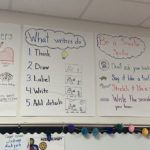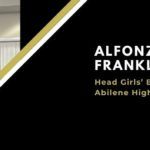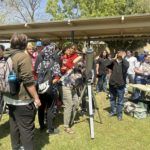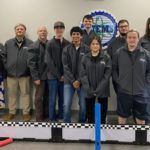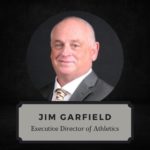In the past, summer school in Abilene ISD – and just about any other school district, for that matter – has been merely a continuation of the school year that ended in May. A few weeks of note-taking, lectures, report-writing, and test-taking to help in grade recovery, remediation for students, and sometimes credit acceleration.
Some students needed summer school to pass to the next grade, while others needed it to fulfill graduation requirements. Either way, it was merely a continuation of the just-completed school year.
But COVID and its after-effects have changed so much about education. It’s changed how it’s done – in-person or virtually – and it’s changed administrative perspective on how summer school should be presented. In addition to grade recovery and remediation, summer school in Texas is also intended for students who failed part or all of the STAAR tests last spring to meet House Bill 4545 requirements.
So instead of the same old summer school, AISD added some “spark” as it were to this year’s summer school plan, opening it up to every student, offering more growth opportunities, the chance to earn awards, and offering classes that have never before been offered. And it has a new name: Summer Spark.
“This program goes beyond remediation,” said Dr. Ketta Garduno, Associate Superintendent for Curriculum and Instruction. “It’s still designed to meet the needs of students who failed a course but also those who failed the STAAR in the spring. But it’s really about enrichment and not just core instruction. This style gives students the chance to earn special activities and/or trips. It also provides academic growth opportunities for students who seek that. And, for the first time in summer school, we are offering PE, music, and art.”
The district is offering three sessions with the first having run from June 6-16. Students are at the end of the first week of the second session with an end date set for June 30, and the third session will be July 5-14. Elementary students are at both Taylor and Dyess elementary schools, while Clack and Craig middle schools are hosting middle school students. High school students are taking classes at both Abilene High School and Cooper High School.
Hilary Hernandez, who serves as the assistant principal at Purcell Elementary School during the regular year, is the elementary-level principal during the summer. She said that teachers have noticed students have enjoyed the new elements that Summer Spark provides.
“Teachers have told me that, for the most part, students are engaged and asking questions and wanting to learn,” Hernandez said. “The other thing they’ve noticed is that – because of everything that’s happened since COVID hit – our students are struggling academically, and they’ve seen those struggles right away. But the students are working hard, and they’re working hard to earn some fun time on Thursdays.”
Each elementary school is hosting approximately 200 students per campus, which Hernandez said is manageable with the number of staff members working at each site. She also said the first two sessions were heavy on students who needed to pass for promotion or because of STAAR requirements.
The district is using Elementary and Secondary School Emergency Relief (ESSER) money to fund all aspects of Summer Spark. The district is addressing learning loss stemming from the COVID shutdown in 2020, and that’s why ESSER funds are available for this program.
“We’re encouraged by the level of student interest – especially at the elementary level – and especially for academic enrichment,” Garduno said. “I’m not surprised by the reaction we’ve received for the program. So many parents are looking for experiences for their children that Summer Spark can provide. They want them engaged and supervised, and this fits the bill for that. It also helps students be better prepared for the fall and sets the stage for success in every area.
“It’s probably too soon to determine whether this format will continue,” she said. “We’ll see how successful it is and the impact it has on students before deciding how to proceed in future years.”


